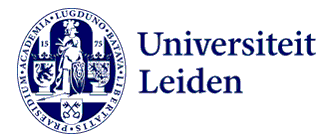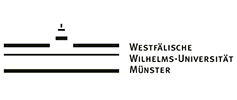Defender of Democracy: The Role of Indonesian Constitutional Court in Preventing Rapid Democratic Backsliding
DOI:
https://doi.org/10.31078/consrev715Keywords:
Democracy, Elections, Indonesia, Judicial PoliticsAbstract
Debate on the quality and durability of Indonesia’s democracy has intensified in recent years. Political scholars had generally praised the country’s democratic achievements and stability in the two decades following the 1998 resignation of long-serving president Suharto. But more recently, a growing number of academics have noted that elements of Indonesia’s democracy are being eroded. While the issue of Indonesia’s democratic backsliding has gained considerable attention and generated much academic literature, few scholars have analyzed why Indonesia has not entered a phase of rapid backsliding or a return to authoritarianism. This article argues the role of the Indonesian Constitutional Court in the consolidation of democracy has been frequently overlooked. By using a qualitative approach involving archival research of the Constitutional Court’s sessions on disputed results in Indonesia’s 2019 elections, this article finds the Constitutional Court has been able to prevent rapid democratic backsliding and even a reversion to authoritarianism, by ensuring competitiveness, participation and accountability in elections.
References
Aspinall, Edward, and Marcus Mietzner. “Southeast Asia’s Troubling Elections: Nondemocratic Pluralism in Indonesia.” Journal of Democracy 30, no. 4 (October 2019).
Edward Aspinall et al. “Elites, Masses, and Democratic Decline in Indonesia.” Democratization 27, no. 4 (October 2019).
Aspinall, Edward, Marcus Mietzner, and Dirk Tomsa. The Yudhoyono Presidency: Indonesia’s Decade of Stability and Stagnation. Singapore: Institute of Southeast Asian Studies. 2014.
Butt, Simon. The Constitutional Court and Democracy in Indonesia. Leiden: Brill Nijhoff. 2015.
The Constitutional Court of the Republic Indonesia. “The Progressive Role of the Constitutional Court in Protecting the Voting Right of the Mentally Disabled and its Influence on Increasing Voter Participation in Elections [Peran Progresif Mahkamah Konstitusi dalam Melindungi Hak Pilih Disabilitas Kategori Orang dengan Gangguan Jiwa dan Pengaruhnya terhadap Peningkatan Partisipasi Pemilih dalam Pemilu].” Accessed October 15, 2020. https://www.mkri.id/ public/content/infoumum/penelitian/pdf/hasilpenelitian_105_Laporan%20 Penelitian%20Kompetitif%20Jember.pdf.
The Constitutional Court of the Republic Indonesia. “Disputes Over the Result of the Presidential and Vice-Presidential Election of 2019, by Prabowo et al. [Perselisihan Hasil Pemilihan Umum Presiden dan Wakil Presiden Tahun 2019, oleh Prabowo dkk].” Accessed October 15, 2020. https://mkri.id/public/ content/persidangan/putusan/putusan_mkri_5390.pdf.
Crouch, Melissa. “Law and Religion in Indonesia: The Constitutional Court and the Blasphemy Law.” Asian Journal of Comparative Law 7, no. 1 (May 2012).
Diamond, Larry. “Indonesia’s Place in Global Democracy.” In Problems of Democratisation in Indonesia: Elections, Institutions and Society, edited by E. Aspinall and M. Mietzner. Singapore: Institute of Southeast Asian Studies, 2010.
Dressel, Bjoern and Tomoo Inoue. “Mega Political Cases before the Constitutional Court of Indonesia since 2004: An Empirical Study.” Constitutional Review 4, no. 2 (December 2018).
Dressel, Bjoern. “Governance, Courts and Politics in Asia.” Journal of Contemporary Asia 44, no. 2 (February 2014).
The Election Commission of the Republic of Indonesia. “The Constitutional Court’s Decisions on the 2019 Election Disputes [Putusan Mahkamah Konstitusi pada Sengketa Pemilu 2019].” Accessed October 15, 2020. https://jdih.kpu. go.id/putusan-pengadilan-mk.
Fealy, Greg. “Indonesian Politics in 2011: Democratic Regression and Yudhoyono’s Regal Incumbency.” Bulletin of Indonesian Economic Studies 47, no. 3 (November 2011).
Fossati, Diego, Burhanuddin Muhtadi and Eve Warburton. “Why Democrats Abandon Democracy: Evidence from Four Survey Experiments.” Party Politics 1 (February 2021).
Fossati, Diego and Marcus Mietzner. “Analyzing Indonesia’s Populist Electorate: Demographic, Ideological, and Attitudinal Trends.” Asian Survey 59, no. 5 (October 2019).
Diego Fossati et al. “Ideological Representation in Clientelistic Democracies: The Indonesian Case.” Electoral Studies 63, no. 6 (February 2020).
Ghaliya, Ghina. “Former KPU commissioner gets six years in prison for election bribery.” The Jakarta Post, August 24, 2020. https://www.thejakartapost. com/news/2020/08/24/former-kpu-commissioner-gets-six-years-in-prison- for-election-bribery.html.
Gibler, Douglas and Kirk Randazzo. “Testing the Effects of Independent Judiciaries on the Likelihood of Democratic Backsliding.” American Journal of Political Science 55, no. 3 (July 2011).
Ginsburg, Tom. Judicial Review in New Democracies: Constitutional Courts in Asian Cases. New York: Cambridge University Press, 2003.
Harijanti, Susi Dwi and Tim Lindsey. “Indonesia: General Elections Test the Amended Constitution and the New Constitutional Court.” International Journal of Constitutional Law 4, no. 1 (January 2006).
Hendrianto, Stefanus. Law and Politics of Constitutional Courts: Indonesia and the Search for Judicial Heroes. New York: Routledge, 2018.
Hilbink, Lisa. “Assessing the New Constitutionalism.” Comparative Politics 4 (January 2008).
Horowitz, Donald. “Constitutional Courts: A Primer for Decision Makers.” Journal of Democracy 17, no. 4 (October 2006).
Hosen, Nadirsyah. “The Constitutional Court and ‘Islamic’ Judges in Indonesia.” Australian Journal of Asian Law 16, no. 2 (March 2016).
Jakarta Globe. “Indonesia Sees Record Turnout in Historic Election, Braces for Fallout.” Accessed October 15, 2020. https://jakartaglobe.id/context/indonesia- sees-record-turnout-in-historic-election-braces-for-fallout.
Linz, Juan and Alfred Stepan. Problems of Democratic Transition and Consolidation: Southern Europe, South America, and Post-Communist Europe. Baltimore: Johns Hopkins University Press, 1996.
McRae, Dave. “Indonesian Politics in 2013: The Emergence of New Leadership?” Bulletin of Indonesian Economic Studies 49, no. 3 (December 2013).
Mietzner, Marcus and Burhanuddin Muhtadi. “The Mobilisation of Intolerance and Its Trajectories: Indonesian Muslims’ Views of Religious Minorities and Ethnic Chinese.” In Contentious Belonging: The Place of Minorities in Indonesia, edited by G. Fealy and R. Ricci. Singapore: Institute of Southeast Asian Studies, 2019.
Mietzner, Marcus and Burhanuddin Muhtadi. “The Myth of Pluralism: Nahdlatul Ulama and The Politics of Religious Tolerance in Indonesia.” Contemporary Southeast Asia 42, no. 1 (April 2020).
Mietzner, Marcus. “Authoritarian Innovations in Indonesia: Electoral Narrowing, Identity Politics, and Executive Illiberalism.” Democratization 27, no. 6 (December 2019).
Mietzner, Marcus. “Fighting Illiberalism with Illiberalism: Islamist Populism and Democratic Deconsolidation in Indonesia.” Pacific Affairs 91, no. 2 (June 2018).
Mietzner, Marcus. “Indonesia and the Pitfalls of Low-Quality Democracy: A Case Study of the Gubernatorial Elections in North Sulawesi.” In Democratization in Post-Suharto Indonesia, edited by M. Bunte and A. Ufen. London and New York: Routledge, 2009.
Mietzner, Marcus. “Political Conflict Resolution and Democratic Consolidation in Indonesia: The Role of the Constitutional Court.” Journal of East Asian Studies 10, no. 3 (December 2010).
Muhtadi, Burhanuddin and Eve Warburton. “Inequality and Democratic Support in Indonesia.” Pacific Affairs 93, no. 1 (March 2020).
Power, Thomas. “Jokowi’s Authoritarian Turn and Indonesia’s Democratic Decline.” Bulletin of Indonesian Economic Studies 54, no. 3 (December 2018).
Seputar Papua [Papuan newspaper]. “Riot in Protest of Local Election Result in Asmat, Four People Allegedly Shot Dead [Rusuh Protes Hasil Pileg di Asmat, Empat Orang Tewas Diduga Ditembak].” Accessed October 15, 2020. https:// seputarpapua.com/view/6985-rusuh_protes_hasil_pileg_di_asmat_empat_ orang_tewas_diduga_tertembak.html.
Sieder, Rachel, Line Schjolden and Alan Angell. The Judicialization of Politics in Latin America. New York: Palgrave Macmillan, 2005.
Siregar, Fritz Edward. “Indonesia Constitutional Court Constitutional Interpretation Methodology (2003-2008).” Constitutional Review 1, no. 1 (May 2015).
Slater, Dan. “Indonesia’s Accountability Trap: Party Cartels and Presidential Power after Democratic Transition.” Indonesia 78, (October 2004).
Stephenson, Matthew. “When the Devil Turns...: The Political Foundations of Independent Judicial Review.” Journal of Legal Studies 32, no. 1 (2003).
Stott, David Adam. “Indonesia’s 2019 Elections: Democracy Consolidated?” The Asia-Pacific Journal 17, no. 6 (March 2019).
Tate, Neal and Torbjorn Vallinder. The Global Expansion of Judicial Power. New York: New York University Press, 1995.
Tomsa, Dirk. “Indonesian Politics in 2010: The Perils of Stagnation.” Bulletin of Indonesian Economic Studies 46, no. 3 (November 2010).
Umasugi, Ryana. “Almost 3 Months Since Applying for e-KTP, But Still on the Waiting List [Sudah Hampir 3 Bulan Urus e-KTP, Masih Masuk Daftar Tunggu].” Kompas, November 24, 2018. https://megapolitan.kompas.com/read/2018/11/24/06470001/-sudah-hampir-3-bulan-urus-e-ktp-masih-masuk- daftar-tunggu--?page=all.
Waldner, David and Ellen Lust. “Unwelcome Change: Coming to Terms with Democratic Backsliding.” Annual Review of Political Science 21, no. 1 (May 2018).
Warburton, Eve and Edward Aspinall. “Explaining Indonesia’s Democratic Regression: Structure, Agency and Popular Opinion.” Contemporary Southeast Asia 41, no. 2 (August 2019).
Warburton, Eve and Burhanuddin Muhtadi. “Politicizing Inequality in Indonesian Elections.” Brookings, April 8, 2019.
Eve Warburton et al. “When Does Class Matter? Unequal Representation in Indonesian Legislatures.” Third World Quarterly 1, (March 2021).
Webber, Douglas. “A Consolidated Patrimonial Democracy? Democratization in post-Suharto Indonesia.” Democratization 13, no. 3 (July 2006).
































































